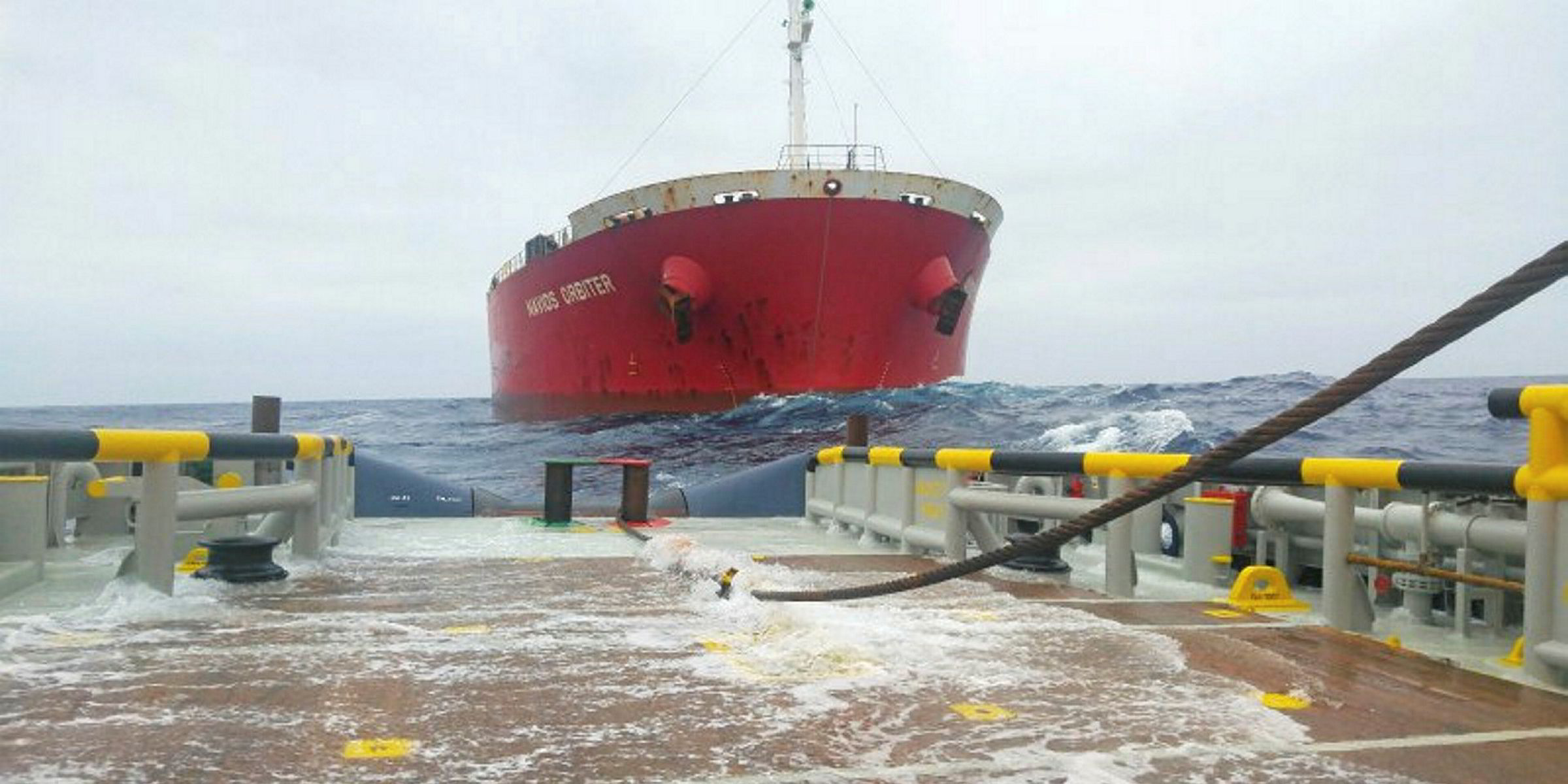More than 50 Lloyd's Open Form (LOF) contracts were awarded in 2017, the highest figure since 2012, in what appears to be a brief respite in the long-term decline of shipping’s traditional emergency response work.
According to the Lloyd’s insurance market, 54 LOF contracts were awarded in 2017, an increase of 12 from 2016.
Tsavliris Salvage Group was by far the most successful salvor in securing 12 LOF contracts in 2017.
- The 63,300-dwt Sinica Graeca (built 2015), which was involved in a collision with the Chemroad Mega off Malaysia in August.
- Engine problems on the 51,235-dwt bulker Triumph (built 2004), which was laden with bauxite in the Pacific some 1,000 nautical miles west of the Mexico coast when it lost power in August.
- Mechanical failure on the 76,602-dwt Navios Orbiter (built 2004), which was fully laden with soya beans when it had to be towed to Lisbon.
- Grounding of the 79,000-dwt bulker Anastasia K (built 2011), which had to be dislodged from the Parana River near Rosario, Argentina, in April with a part cargo of maize.
It won the last LOF contract to be awarded in the year on 27 December when it was called to respond to the 169,000-dwt bulker Maria A Angelicoussi (built 2001), which broke down due to engine failure while fully laden with mineral ore in the South China Sea.
Tsavliris’ compatriot Five Oceans Salvage was the second most successful salvor. The company, which was formed in 2006 by former Tsavliris employees, won six LOF contracts last year. It has become Tsavliris’ closest competitor in the LOF market having already won 74 LOF contracts in just over a decade.
Major North European salvage companies Multraship Towage & Salvage, Ardent and Smit Salvage won five LOF contracts each in the past year.
Tsavliris Salvage managing director Andreas Tsavliris, speaking at the firm's 30th annual Christmas party in London, said 2017 had been a “successful” year for the company despite a difficult market.
He stressed the importance of the so-called “no cure, no pay” LOF contract under which salvors respond immediately to an emergency situation and negotiate the price after the casualty has been resolved.
He said the increasing use of side letters and addendum clauses in LOF contracts goes "against the meaning and whole spirit of the contract, causing a lot of illegalities and disputes between the parties involved”.
Tsavliris pointed out that salvage companies would always respond to a casualty “no matter the circumstances or challenges”.
LOF contracts have been in decline over the past decade as insurers prefer pre-negotiated terms and conditions for emergency-response work in the belief it would limit costs.
Among the 2017 casualties are a number that could result in high-value awards for salvors.

Ardent won an LOF contract to lighter the cargo and remove pollutants from the 2,194-teu Kea Trader (built 2017), which grounded on the Durand Reef in the South Pacific in what is likely to be one of the highest-value losses in 2017. Salvors are bidding for the wreck-removal contract.
Another high-value award could come from the LOF contract for the Bibby Line-controlled 56,000-dwt bulker Cheshire (built 2012). Its cargo of fertiliser caught fire near Gran Canaria. The contract went to Resolve Marine Group, which successfully contained and extinguished the blaze. The rescued cargo is of high value and the job was difficult and dangerous for the salvage workers.



